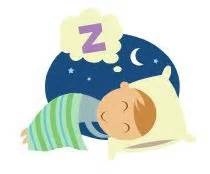Tips for Sleep Difficulties And Autism

Many parents deal with children who have a difficult time falling asleep or even staying asleep. Most of the time these temporary sleep difficulties are usually on the normal side. But, children who are on the autism spectrum seem to have more sleep-related difficulties than children who are not on the spectrum.
According to WebMD, significant sleep problems can occur in 40% to 80% of children on the autism spectrum. For children who don’t get enough sleep their daytime behaviors are affected which can lead to a worsen of those behaviors. This could also end up affecting parents/caregivers and at times, siblings which can be stressful all around.
I have many nights where I only get 3 hours of sleep, because of CJ’s sleep-related difficulties. He has even interrupted his baby brother’s sleep. I usually try to keep him calm, he likes to have a cup of soy milk and sometimes that’s enough to get him back to sleep. Other nights, he wants to play and jump and watch his favorite movies. But since I have been following these tips, I’ve listed below, I have seen a big improvement. Though, there are still times where I get little to no sleep, but it is not as frequent.
The following tips (by author Rachel Evans) are for parents to help their autistic children get to sleep and stay that way until morning:
– Set a bedtime and stick to it, including the routines that occur before bedtime. This allows the child to experience a degree of consistency and predictability, which is often vital to an autistic child’s proper functioning.
– Provide your autistic child with visual rules that indicate the rule for staying in one’s room or bed at night. These visual rules should be posted in various visible areas of the bedroom.
– Pair the bedtime rules and routines that you create with social stories that can help to speak to your autistic child’s sleep-related anxieties.
– Change the bedroom environment to make it more appealing to your autistic child. While some autistic children respond well to having a nightlight, others require total darkness with a black out blind over the window for blocking the exterior light as well. Many autistic children sleep better when their bed is pushed up against the wall, as they feel more secure; a corner is even better. To block out any sounds that may be distressing your child, use a white noise machine or run a fan in your child’s bedroom.
– If you usually sleep in the same bed as your autistic child and he or she is struggling to sleep alone, “replace” yourself with a sleeping bag or body pillow to mimic the pressure that would usually exist if you were lying in the bed.
– Use layers for your child’s pajamas and tuck him or her in well so that any tactile sensitivity will be minimized.
By finding out any disturbances causing your child not to sleep and by introducing routines and an effective sleeping environment, your autistic child should be able to enjoy a great deal more sleep – as will you.
I would love to hear your ideas on helping your child to sleep and staying asleep, please share in the comments below.
